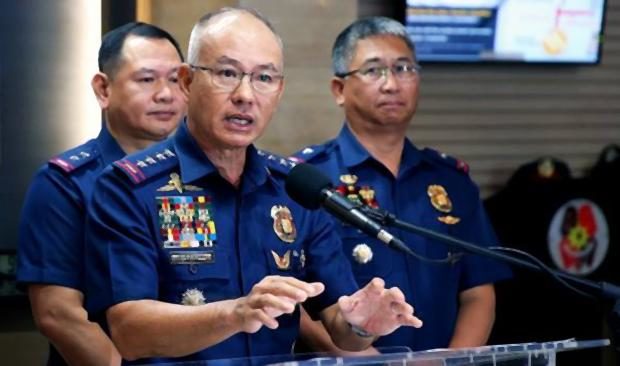
Director General Oscar Albayalde gives a press briefing on Monday, Oct. 22, 2018. (Photo from a PNP video posted on its Facebook page)
Philippine National Police (PNP) chief Director General Oscar Albayalde denied on Monday that the government’s drug war had emboldened lawmen to engage in the alleged “palit-puri” (sex in exchange for freedom) scheme, saying the claim is both “harsh” and “totally unfair.”
The Coalition Against Trafficking in Women – Asia Pacific (CATW-AP) earlier claimed that women facing drug charges would agree to unwanted sexual advances by the police since “death is a possibility.”
READ: NGO: Drug war worsens ‘palit-puri’
“There are probably sexual advancements, pero sa sinasabi nilang rampant I think that’s too harsh to say,” Albayalde said in a press briefing. “If you say that, that’s totally unfair to the Philippine National Police.”
(There are probably sexual advancements, but in regards to what they claim that it is rampant, I think that’s too harsh to say. If you say that, that’s totally unfair to the Philippine National Police.)
The claim of the CATW-AP came after PO1 Eduardo Valencia was arrested for allegedly forcing a 15-year-old girl to have sex with him in exchange for the freedom of her parents accused of drug charges.
Albayalde said the case of Valencia was a “very isolated case.”
He added that he never received a similar report when he was still director of the National Capital Region Police Office.
Albayalde said, however, that the case being isolated would not mean that the PNP would turn a blind eye to the practice.
“Please lang, this single act does not reflect the general behavior and discipline that we have in the Philippine National Police. Wag naman nating sabihin na generalized (Let’s not say it is generalized),” he said.
Albayalde said that the PNP’s human rights division was watching out for police abuses of against women. He said they even allow local and foreign agencies to inspect police stations.
“We will never tolerate this in our ranks. We want to assure the public about that,” he said. /cbb


